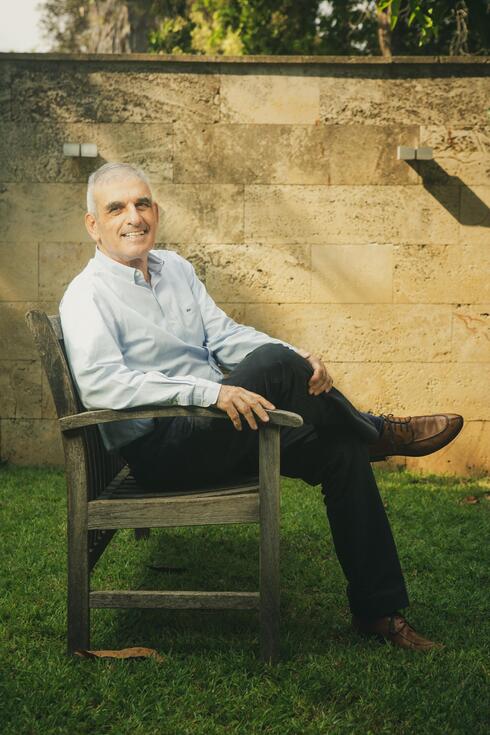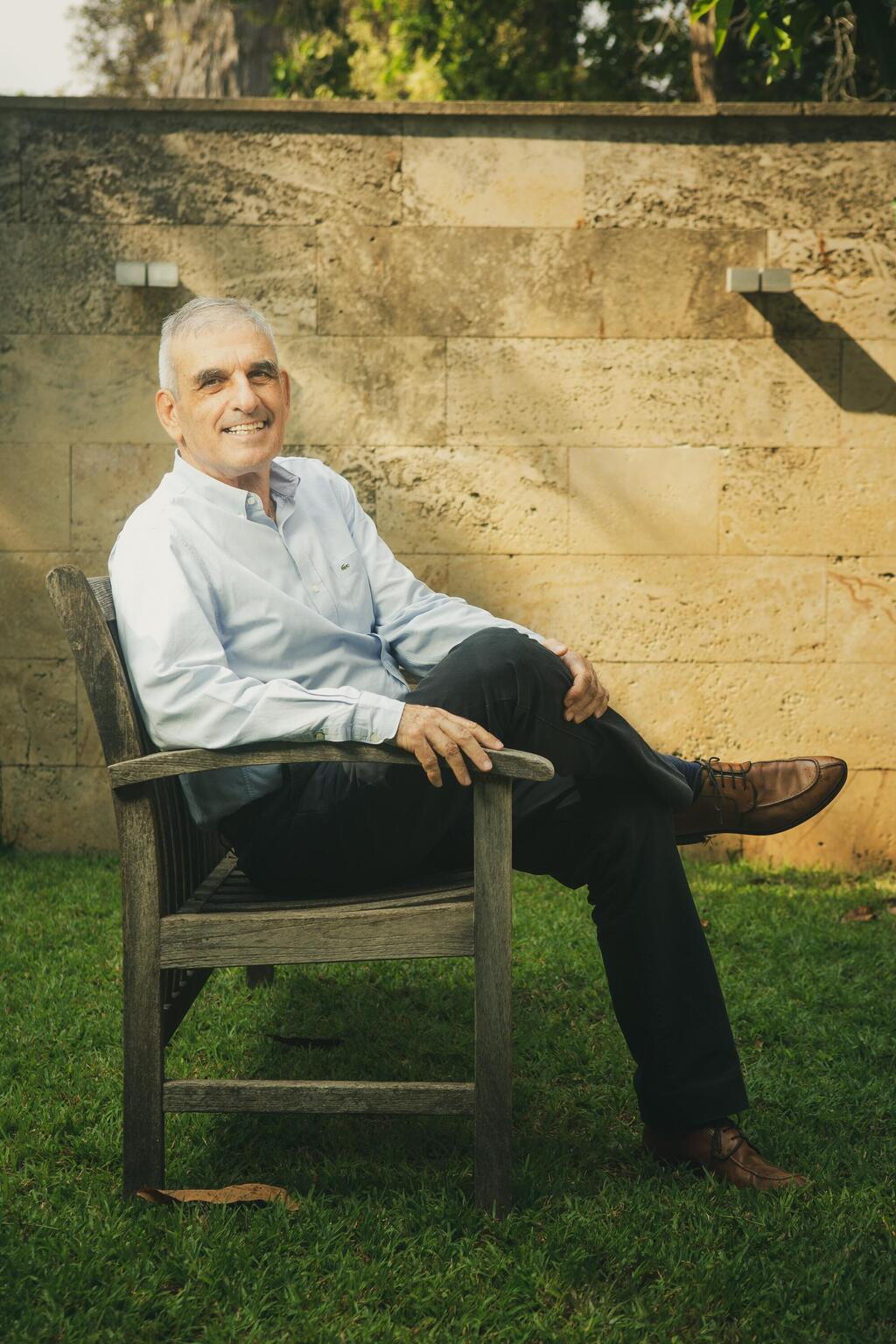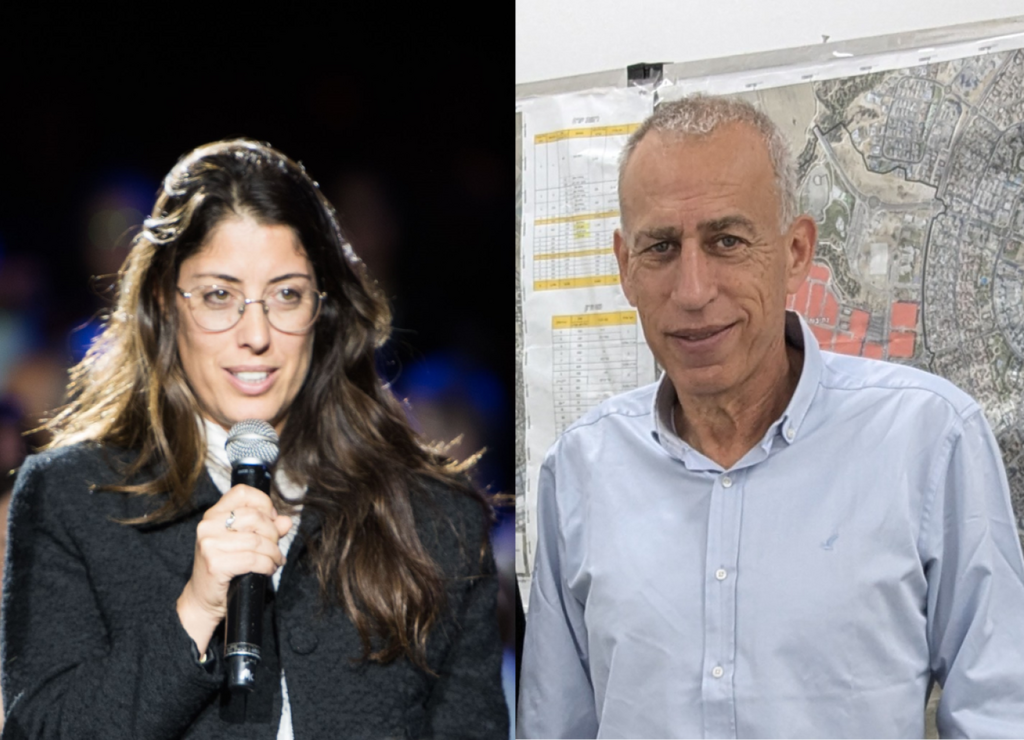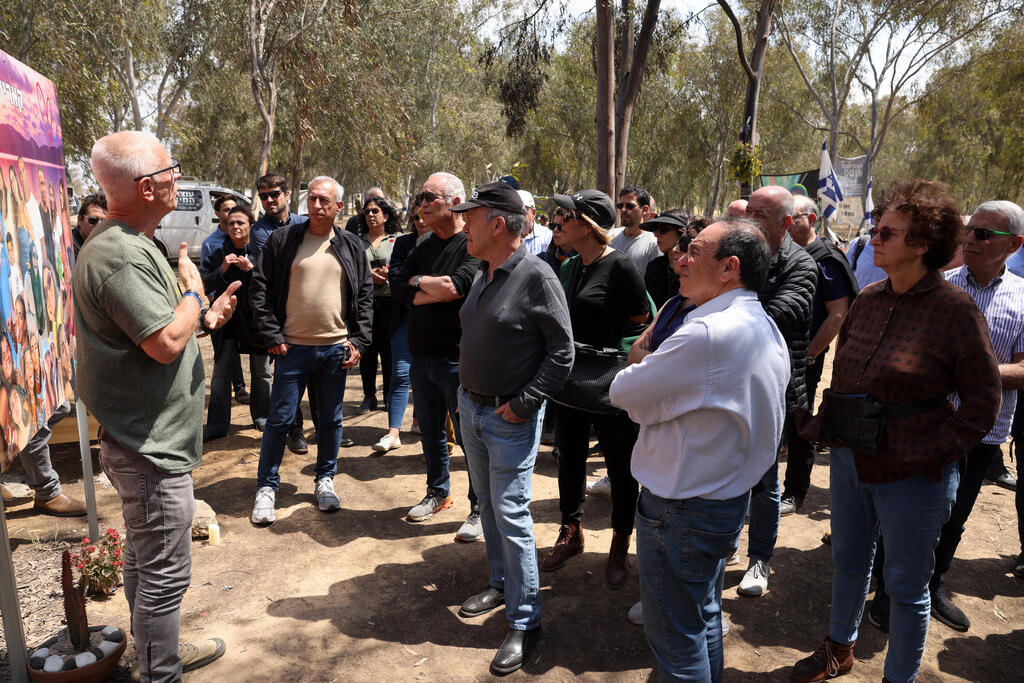
The Yossi Bachar Fellowship: “Striving for Long Term Systemic Change”
Established in the memory of the late Dr. Yossi Bachar, the Bachar Fellowship offers a unique platform for senior public sector officials to lead systemic change in Israeli society. The current fellows include former Ministry of Health Director General Prof. Nachman Ash, who is working to strengthen community health in the Periphery, and former Ministry of Innovation, Science and Technology Director General, Hilla Haddad Chmelnik, who is leading efforts to prepare the education system for the impact of AI. These two initiatives reflect the contemporary challenges facing Israeli society
3 View gallery


The late Yossi Bachar served as Finance Ministry Director General, Chairman of Israel Discount Bank and Chairman of the Joint-Elka's Advisory Committee
(photo: Tommy Harpaz)
Dr. Yossi Bachar, who passed away in 2020, left an impressive legacy of excellence and collaboration across various sectors. His career spanned both the business and public sectors, where he was known for his commitment to excellence and deep dedication to Israeli society. In his final years, (2014-2020), Bachar served as co-chair of the JDC-Elka Advisory Committee. During this time, alongside then-Director Rani Dudai, he developed an organizational strategy to advance public and social systems through cooperation between the business, social, and public sectors. The Bachar Fellowship was born from this vision.
The Bachar Fellowship, created in partnership between the Bachar family and JDC-Elka to preserve Yossi’s legacy, is a unique and prestigious program for individuals who have held senior roles across various sectors.
“The fellowship strives to promote systemic change in the public and social spheres, emphasizing practical change, rather than solely academic research,” explains Rani Dudai, Director of the Fellowship's Steering Committee. The program incorporates several ambitious elements, addressing fields with broad systemic challenges, focusing on individuals with proven experience in driving change, and aiming to create lasting public infrastructure.
Comprehensive Framework for Social Change
The fellowship, funded by Israeli and international donors, including Discount Bank and the Russell Berrie Foundation, provides recipients with significant resources: a living stipend; a dedicated budget for research and publications; support in engaging partners via JDC-Elka networks; an international research trip and hands-on professional supervision. Fellows are also provided with research assistants and personal mentorship from senior executives.
One of Bachar's most important initiatives, “Yossi’s Bus,” involved inviting leading business and public sector figures on tours of Israel’s social and geographic periphery. After his passing, the initiative was incorporated into the fellowship to uphold his legacy of connecting the business world with social engagement."
3 View gallery


Prof. Nachman Ash and Ms. Hila Haddad Chamelnik – Bachar Scholars in 2024-25
(Hila Photo: Sharon Eliasi. Nachman Photo: Netivot Municipality)
“Despite All Efforts, Gaps between the Periphery and Center of the Country Remain”
Prof. Nachman Ash, with his in-depth knowledge of the health system, has used his time as a fellow to focus on strengthening community healthcare in the Periphery. “As a director of Maccabi Healthcare Services’ Health Division, Coronavirus Commissioner and Ministry of Health Director General, I saw the broader picture”, he says. “The Ministry of Health does a great deal to strengthen the Periphery, but the figures aren’t improving dramatically. You might see localized improvements, but the gaps remain.” “The fellowship allows me to think about the issue in an open and groundbreaking way", Prof Ash explains. "I'm not working through the system but using it instead. “I am familiar with JDC and its role in advancing healthcare from the various positions I’ve held over the years. It’s an important organization, involved in crucial initiatives such as placing healthcare representatives in local municipalities. The connection felt very natural to me. JDC has a strong positive impact and works with a genuine and continuous drive for meaningful change.”
As part of the fellowship, Prof. Ash is leading three main initiatives: strengthening medical staff by integrating specialist nurses into clinics in the Periphery, developing an innovative model to advance healthcare through local municipalities in collaboration with healthcare providers, and mapping successful initiatives in specific fields, and apply their principles.
A pilot program for integrating specialist nurses is planned for northern communities that were evacuated. “We can expect a significant gap in the ability to provide medical services to residents returning home," he explains. “Together with the healthcare providers and local municipalities, we aim to place specialist nurses in clinics as part of the fellowship.” This requires recruiting nurses from various fields who are interested in working in the community and setting up a specialized training program for the North. To identify obstacles, Prof. Ash is conducting research and mapping a way to implement the initiative.
Prof. Ash explains the involvement of local authorities in improving healthcare services in the Periphery: “Local authorities have no official healthcare role beyond supervision. However, some, especially the stronger ones, play an active role in improving healthcare for their residents. Local authorities have excellent communication with their communities. They’re familiar with the nuances of different population groups and know how to engage with them”, he says. “The challenge primarily lies in the Periphery and in weaker communities”. He continues, “We’re working with many partners – government ministries, the Ministry of Health, healthcare providers and philanthropists. The various parties involved recognize the value of what we do and are committed to our mission”.
“We’re Facing a Tsunami and Must Prevent AI Illiteracy Among Our Young People”
This year’s second fellow, Hilla Haddad Chmelnik has held senior security positions at Netivei Israel (National Roads Company of Israel), the Ministry of Transport and the Ministry of Innovation, Science and Technology. She is now tackling the increasingly urgent task of preparing the education system for the impact of artificial intelligence. “At the Ministry of Science, I saw the state of non-defense science in Israel”, she says. “The long-term outlook isn’t optimistic. We’re seeing a decline in the number of Physics students – the subject most relevant for integrating science and hi-tech. Compared to other countries we aspire to be like, our trends are concerning”.
“We’re facing a Tsunami, and we have to prepare for it right now”, says Haddad Chmelnik. “Generative AI burst into our lives at the end of 2021 and has advanced at lightning speed, while public systems don’t allow for fast and broad response. During my time at the Ministry of Science, I was involved in creating a program to advance AI. Looking ahead, I believed that, through the fellowship, I could contribute outside of an official role”.
Haddad Chmelnik is focusing on creating “basic AI literacy” for schoolchildren. “In the very near future, the level of AI knowledge will be a measure of literacy. Our goal is for as many under-18s as possible to understand what AI is, what its capabilities are, and develop critical thinking about it”.
Haddad Chmelnik’s work includes mapping the education system and identifying fast and effective channels of influence. “I have the advantage of not coming from the education system, but rather offering an outside perspective. To complete the picture, I’ve also met with educators” she says, “We realized that the education networks are an important channel because they are smaller and more flexible. So, we’re working extensively with the ORT network which accounts for 10% of the education system. This could serve also as a model for other networks and for the entire system”. She views parents as a crucial factor in implementing new digital competencies, and is developing ways to reach students directly through the rights channels.
3 View gallery


"Yossi's Bus" to the Nova Party Site and the surrounding communities
(Photo: Ariel Zandberg)
Long Term Impact Using the JDC’s Unique Resources
The Bachar Fellowship is awared by the JDC-Elka Division, part of the JDC, the world’s biggest Jewish humanitarian organization. In Israel, the JDC works in strategic cooperation with the government and various population sectors. In normal times, over a million Israelis benefit from social services developed by JDC Israel. Since the start of the “Iron Swords” war, more than a million and half Israelis have received JDC emergency services.
The two fellows emphasize the fellowship’s importance and the resources it provides. “The JDC’s support, including the organization’s connections, resources, collaborative work with the fellowship manager, research assistants, and a living stipend, enables real progress", says Prof. Ash. Haddad Chmelnik adds, “The fellowship also provides me with a framework and a commitment to research and promote the issue. Would this have happened without the fellowship? Probably not. I would have recognized the issue as important, but life would have taken me elsewhere”.
JDC Director General Ori Gil says, “We’re starting the selection process for the next fellow right now. We’re looking for individuals with experience in leading broad systemic change, who are passionate about a social issue that needs addressing, and who have faith in their ability to make it happen.
For more details about the Bachar Fellowship, click here>>












